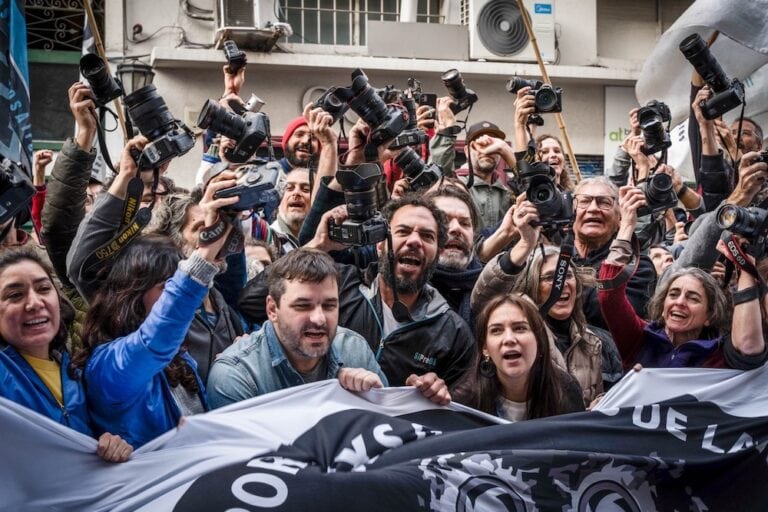(PERIODISTAS/IFEX) – On 17 September 2002, a federal court judge and attorney raised the possibility of tapping the telephone of Thomas Catán, correspondent in Argentina for the daily “Financial Times”. The measure would form part of an ongoing investigation into corruption in the Senate. In a 30 August “Financial Times” article, Catán reported that a […]
(PERIODISTAS/IFEX) – On 17 September 2002, a federal court judge and attorney raised the possibility of tapping the telephone of Thomas Catán, correspondent in Argentina for the daily “Financial Times”. The measure would form part of an ongoing investigation into corruption in the Senate.
In a 30 August “Financial Times” article, Catán reported that a group of foreign bankers complained to the United Kingdom and United States embassies that certain legislators had asked for a bribe in exchange for delaying a bill that would impose a 2 per cent tax on banks, to finance social assistance programmes for bank employees.
Two weeks later, a number of government officials reacted to the journalist’s report. Luis Barrionuevo, senator for Catamarca province and one of the individuals mentioned in the article, accused Catán of representing “banking interests” and said that the article was “a typical example of the press out for revenge” aimed at preventing the taxation bill from being passed.
On 17 September, the journalist testified before Judge Claudio Bonadio, presiding over the Eleventh Federal Criminal and Correctional Court, and Attorney Guillermo Marijuán. Catán answered all questions but refused to identify his sources of information, maintaining that “those who informed him of this matter had the right to condemn the action without facing reprisals.” Even though the judge and attorney respected the journalist’s determination, they asked for his telephone numbers during the interrogation.
The suggestion that Catán’s telephone may be tapped sparked a reaction from a number of press organisations, including the Association of Foreign Correspondents (Asociacion de Corresponsales Extranjeros) and PERIODISTAS. In a press release, PERIODISTAS noted that Catán had acted in accordance with the law, principles espoused in the constitution and international conventions that guarantee the right to inform and be informed.
PERIODISTAS warned that if the measure is adopted, “it would constitute a threat against all journalists. Such treatment of a foreign correspondent in the country would be perceived internationally as a violation of freedom of expression, unworthy of a democratic regime.”
Recommended Action
Send letters of support to:
Thomas Catán
“Financial Times” in Argentina
Tel: +54 11 4326 7204
Send appeals to the Eleventh Federal Criminal and Correctional Court:
– expressing concern over the possibility that Catán’s telephone may be tapped
Appeals To
Eleventh Federal Criminal and Correctional Court
Judge Claudio Bonadio
Attorney Guillermo Marijuán
Tel: +54 11 4314 2919 / 54 11 4314 2916
Please copy appeals to the source if possible.


